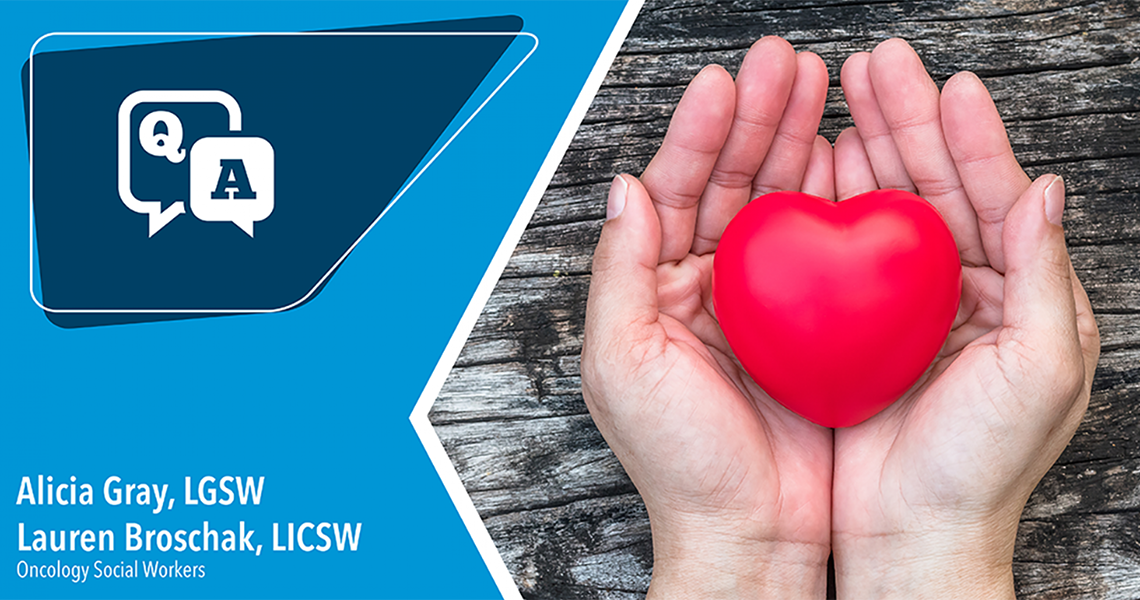The social work team at the George Washington University (GW) Cancer Center provides psychosocial and clinical support services to patients, caregivers and families through diagnosis, treatment and survivorship. The team also facilitates supportive and educational programs on a variety of topics to help those affected by cancer.
What brought you to GW?
Lauren: I have a passion for working with those touched by cancer, and was searching for an opportunity to work in oncology again. At the time I was working at another health care facility, but was not working with cancer patients and families. I found the opportunity at GW, and researched the wonderful oncology program that the cancer center has. I couldn’t help myself but to apply, and was fortunate enough to be offered the position. Accepting was a no brainer, and I have loved being able to serve the patients and families at the cancer center ever since.
How did you decide on a career in social work?
Alicia: For the fame and money! - Just kidding. As cliché as it sounds, I have a desire and passion to help people. I enjoy learning about patients and their loved ones and hearing their story, and social work fits that perfectly.
If you weren’t in the field of oncology social work, what would you be doing?
Lauren: I love the field of Social Work! But if I weren’t a Social Worker, I would either be pursuing a career in music (singing to be specific) or a full-time Zumba instructor.
What inspires you most about your work?
Alicia: The people that I interact with each day inspire me! Including patients, families, nurses, doctors, and administrative staff. Everyone is working so hard and doing an amazing job.
What is a current project or work you are excited about and why?
Lauren: Alicia, the Social Workers from the Smith Center for Healing and the Arts and I are working on two presentations for the Association of Oncology Social Work conference in June 2019. One is on the unique needs of millennial cancer caregivers and the other is on knowing yourself as a person and practitioner and how that can better your practice as a social worker/therapist. I love learning more about the oncology population and the field of social work. I get really excited about teaching others and helping develop more knowledge and skills for other social workers so that the care for those touched by cancer can continue to improve.
What is something you wish people knew about oncology social work?
Alicia: That although the work is hard, there is laughter and joy in the work we do. The relationships we create with patients are very impactful; not only for them, but for us too. And within those relationships we find a lot of hope.
What makes the GW Cancer Center unique when it comes to supporting patients, caregivers and families?
Lauren: Our Patient Navigators. Although the team is small, they make a world of difference both for the patients and for the physicians and staff. They help with so many barriers to care, and truly make the patients’ experience go more smoothly. They also create strong bonds with our patients and help make them feel so cared for. They are one of the most important elements to cancer care, in my opinion, and the team at GW is truly spectacular.
What advice would you give to an aspiring social worker who wants to work in your field?
Alicia: Be flexible. Your schedule can change rapidly, and you may find yourself playing different roles throughout the day. Also, be sure to make time for self-care!
This Q&A was posted in March 2019.




